Ghostbusters: Afterlife Review
It seems like Jason Reitman was born to direct Ghostbusters: Afterlife. After all, his father directed the original film. Jason is in Ghostbusters 2. Ghostbusters has been a part of his life for practically all his life.
He has memories of being on set for the first film, watching his father help create an iconic film that is beloved by millions and has stood the test of time. It would also be a movie that would evoke complicated, powerful memories in him.
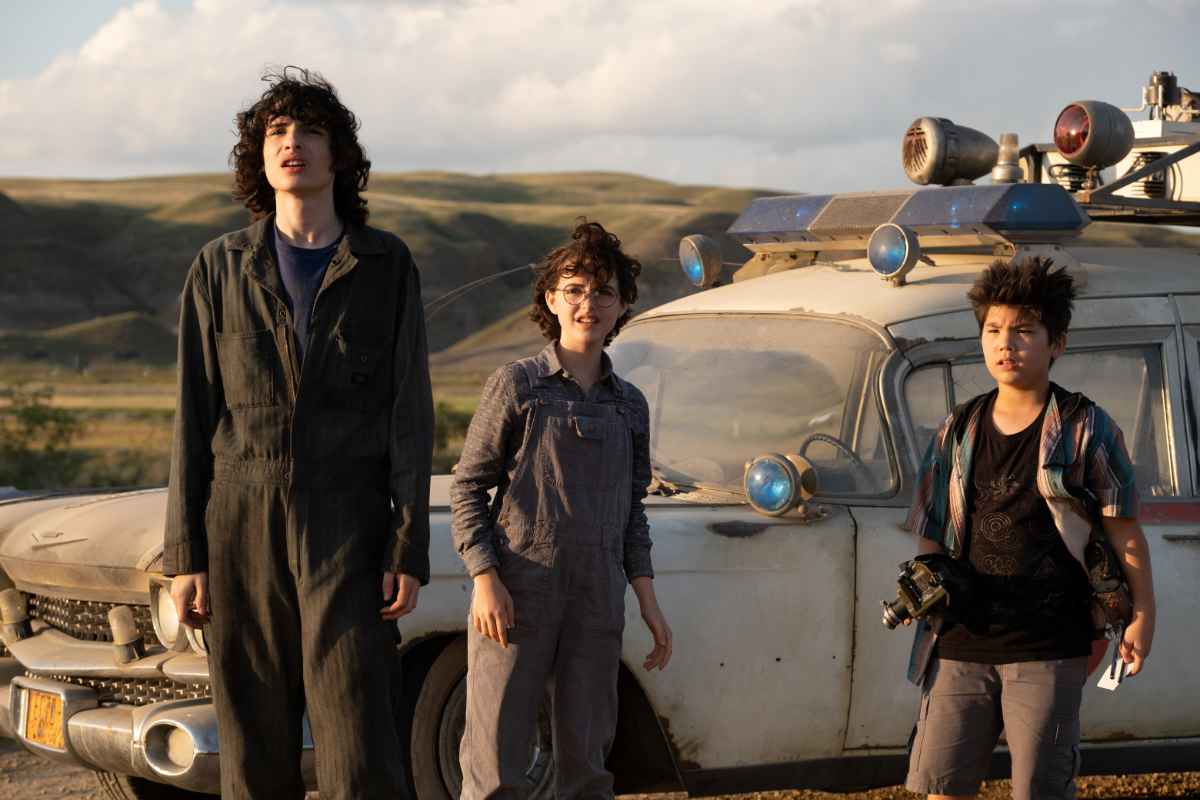
However, his experiences with the franchise won’t be everyone else’s – in fact, it won’t be anyone else’s. He’s going to see a different movie than we all saw – some Saturday Night Live actors riffing on top of a supernatural action-adventure comedy. He’s likely going to look back at those experiences as an integral part of his childhood.
Thus, we get Ghostbusters: Afterlife, a movie that is far more reverential than its source, a kid’s movie for a generation that never grew up on Ghostbusters‘ sardonic, edgy comedy. Ghostbusters, at the time, was decidedly not nostalgic; in a time when children’s films like E.T., Wargames, Return of the Jedi, and others ruled the box office, Ghostbusters was a different kind of entertainment, more closely related to films like Animal House, Caddyshack, or Stripes than those other movies.
Sure, the family could come along, but Ghostbusters was not above a certain sex joke that may have flown over the kids’ heads but not over the adults.
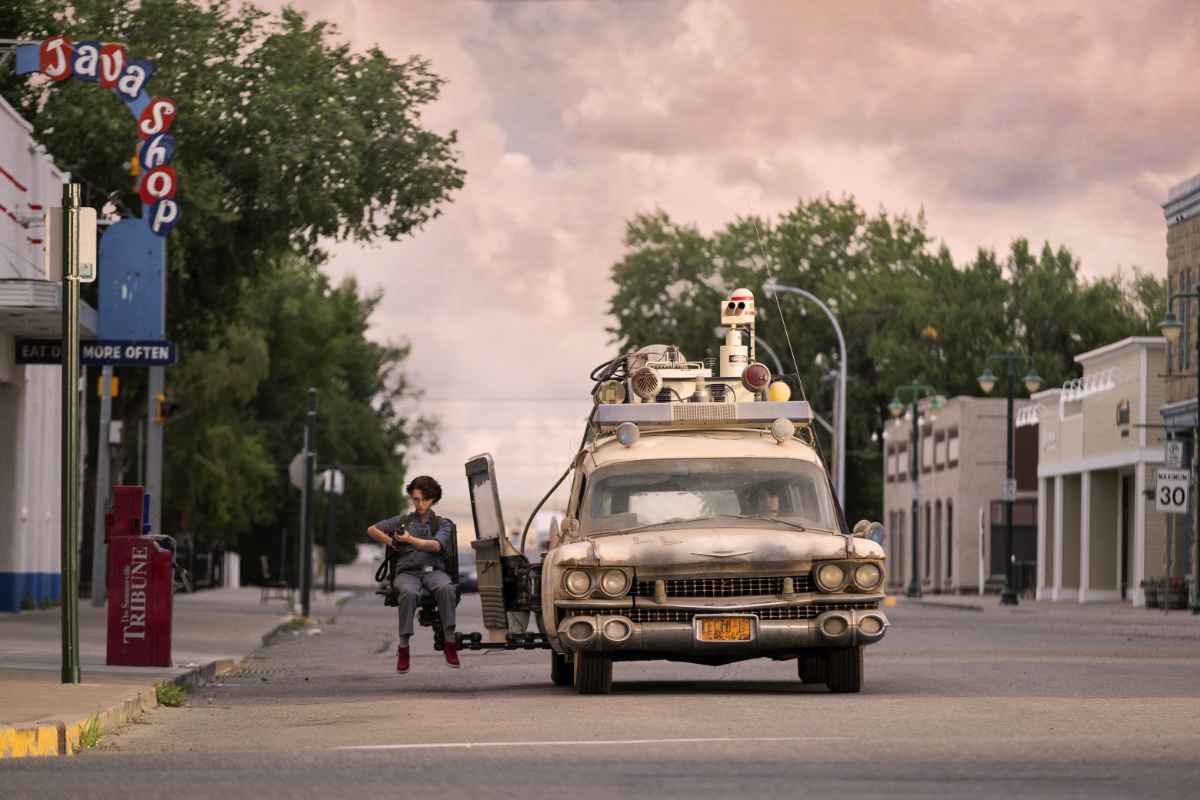
There are no sex jokes in Ghostbusters: Afterlife. In fact, there aren’t many jokes at all, which is a huge hurdle for a Ghostbusters sequel to overcome. What’s a Ghostbusters sequel that isn’t funny? There will be an inevitable compare-and-contrast with Paul Feig’s 2016 Ghostbusters redo, but that film was undeniably funny.
Even if a joke didn’t land for you, one would come along in a few minutes that did. Ghostbusters (2016) tried to continue with the spirit and the humor of the first two films. Afterlife, while ostensibly being a Ghostbusters movie, is closer to a 1980s Amblin film than the original film.
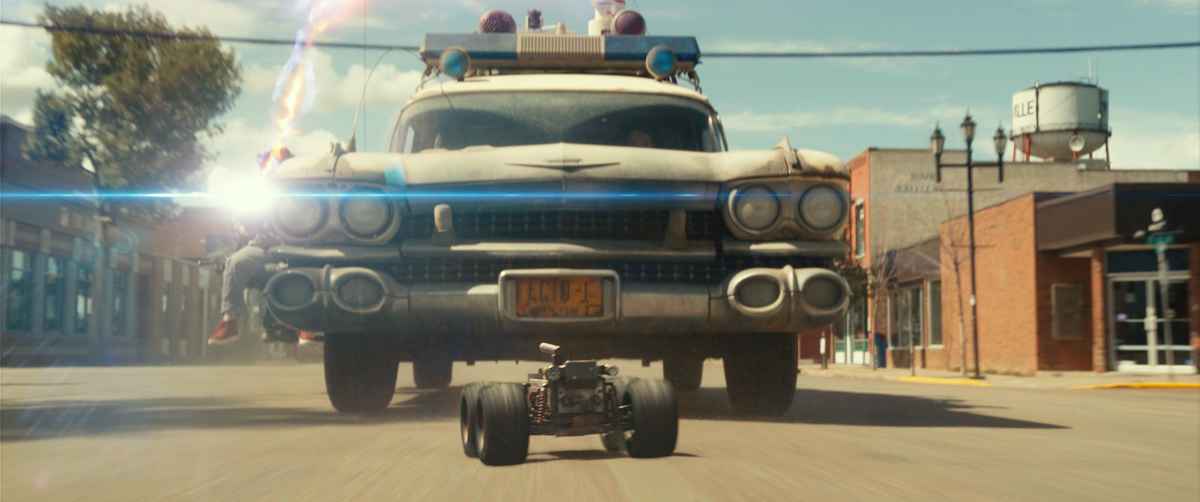
Callie (Carrie Coon) is struggling to raise her two children, Trevor (Finn Wolfhard) and Phoebe (Mckenna Grace). Trevor is lanky and socially awkward, while Phoebe is steeped in science and technology. Callie can’t afford to pay the bills, but when she learns that her estranged father passed away and left her with some land outside of a small town in Oklahoma, she takes the kids there to hopefully close and sell the property and pay off some bills.
But the property is worthless; her father, known locally as “The Dirt Farmer,” was an eccentric old man who didn’t have any friends, so everyone treated him as an outcast.
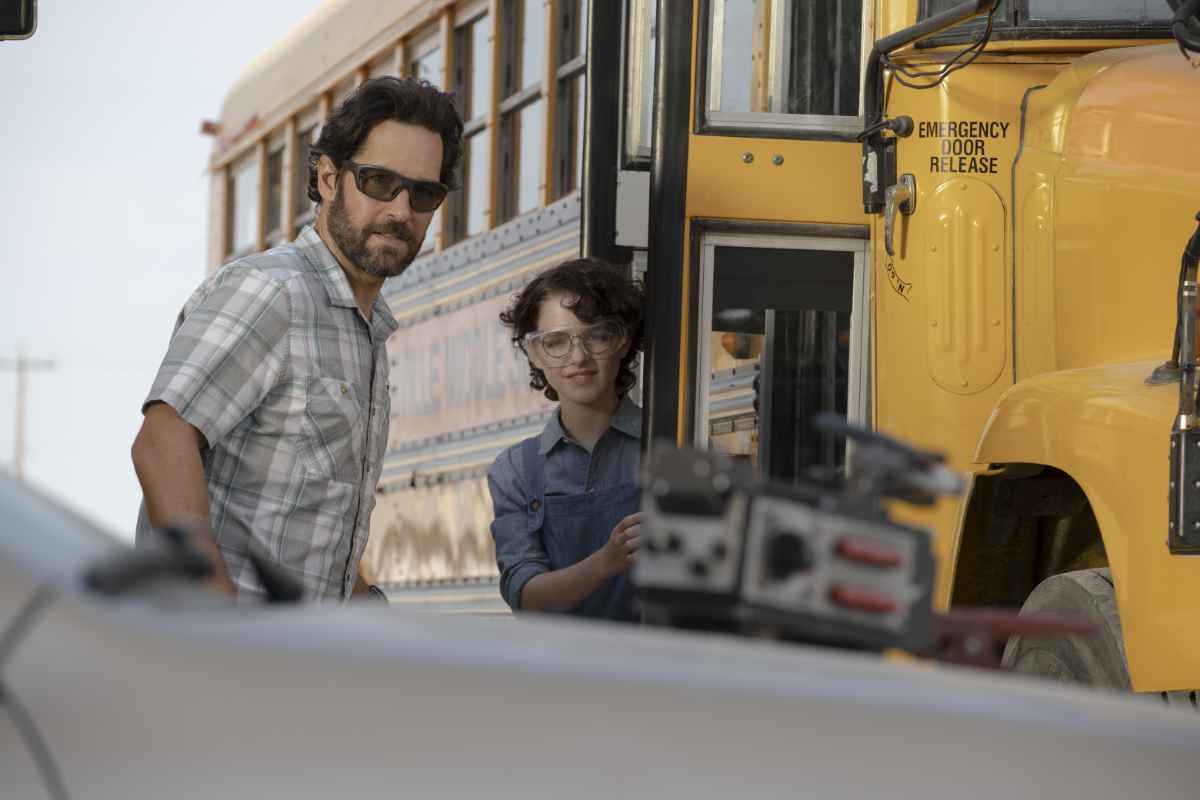
While Trevor tries to make friends, Phoebe discovers that there may be more to her grandfather than she was told, finding mysterious gadgets scattered on the property. Strange occurrences begin happening in the house and throughout the town.
When local science teacher Gary Grooberson (Paul Rudd) sees the gadgets and identifies them as Ghostbuster gear, and that Trevor and Phoebe’s grandfather, Egon Spengler, once saved the world, the two realize that Egon was trying to prevent something from happening and that they may have to pick up their grandfather’s mantle.
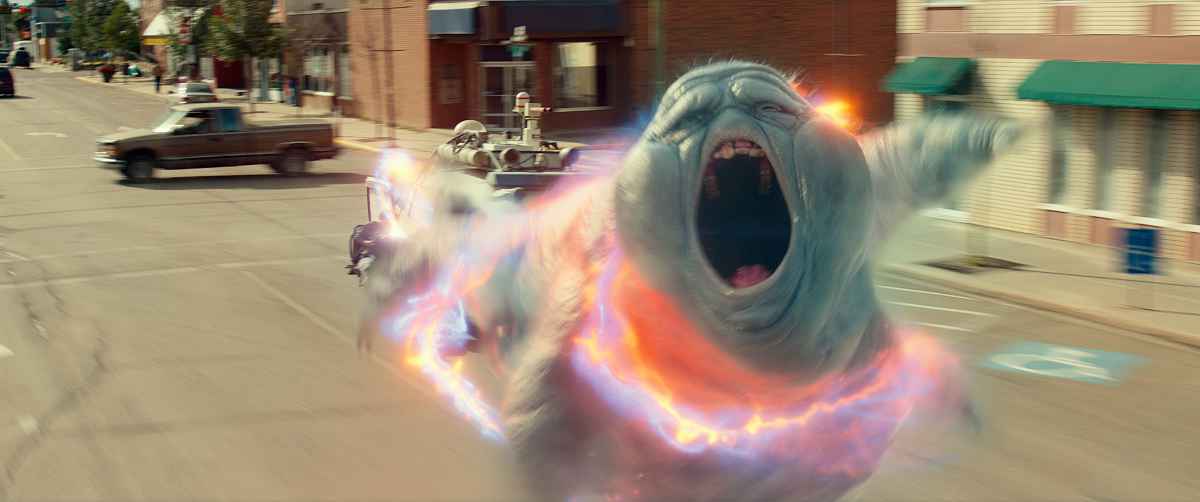
Nostalgia in measured doses can be a good thing, especially in a sequel like this, giving emotional weight to the material and linking the film to the past in a satisfying way. However, Afterlife is so steeped in nostalgia for the original film that it never breaks free and finds a life of its own. The film is full of references, and if you miss one, just wait; another will be along in just a second. Afterlife treats the first film as a holy writ.
But Ghostbusters never treated anything as holy writ; these guys were glorified janitors working with Sumerian gods and evil spirits and ancient mythologies. That’s one of the aspects of the first film that made it so funny. Here, Afterlife is so beholden to the events of the first film that you can time Afterlife‘s story beats with a stopwatch. We know exactly how this movie will play out by the time Phoebe straps on her first proton pack.
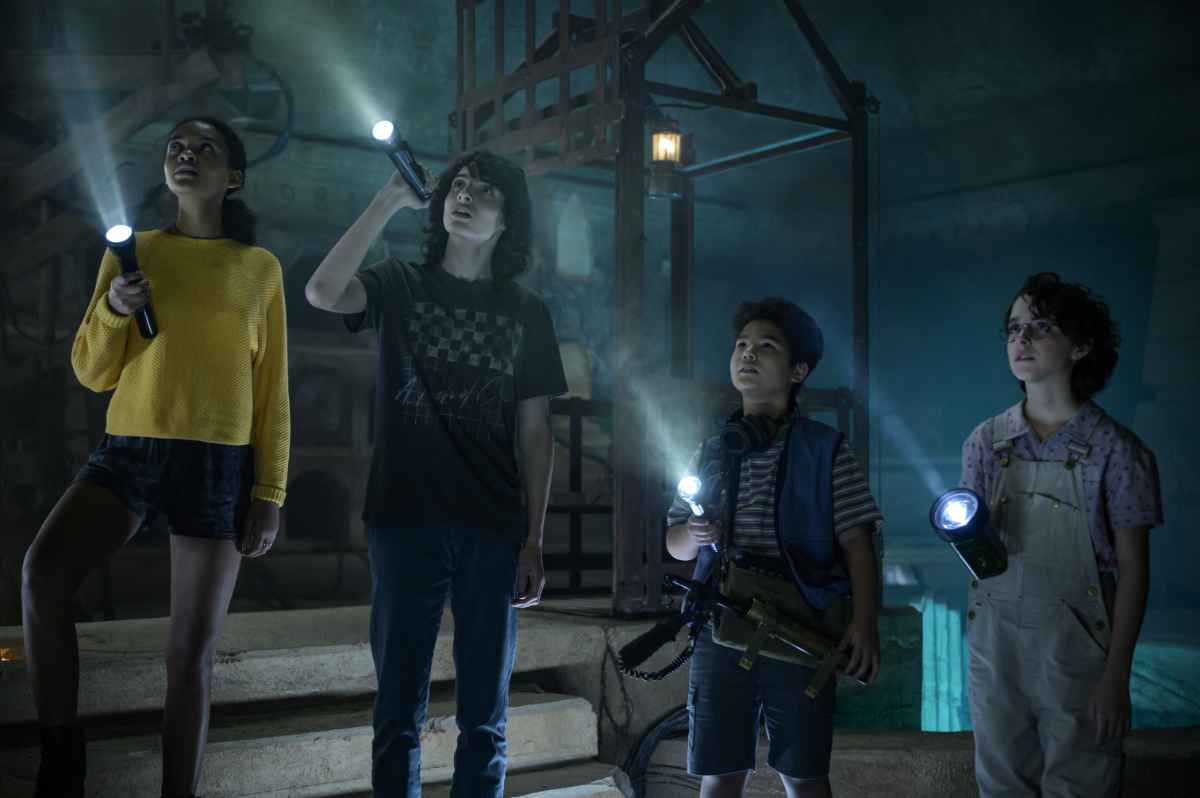
Afterlife also requires us to change our perceptions of the original characters to a point that they cease to become recognizable as the characters we knew and loved almost 40 years ago. The changes in character that Afterlife does with Egon Spengler (Harold Ramis) are only there to push the plot forward, but they make no sense in the character that’s been established so far, and it makes no sense in how we see those plot points play out except for the movie to tell the story it wants to tell.
Egon was a fiercely loyal friend and companion to Ray Stantz (Dan Aykroyd), Peter Venkman (Bill Murray), and Winston Zeddmore (Ernie Hudson), but for this movie to happen, you must forget all that. There is being reverential to the source, and then there’s throwing out the best aspects of the source to serve the movie’s purpose, and Afterlife can’t have it both ways.
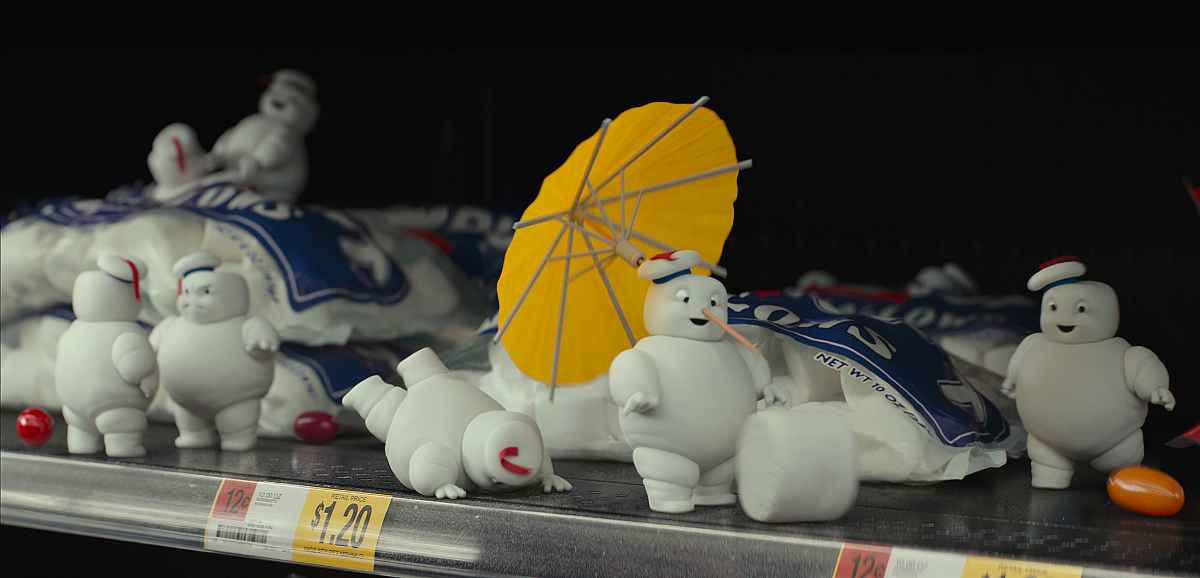
There are moments in Afterlife that work. Mckenna Grace is wonderful and the best thing in Afterlife. She’s playing the granddaughter of Egon Spengler, but she’s also a unique person with her own struggles and wants, and the way Grace navigates the legacy of the character with Phoebe’s own agency is very well done.
Finn Wolfhard only suffers by comparison because he’s given less to do; you sense that the movie wants to make Trevor the Venkmanesque wiseass role, but in a movie with hardly any jokes, that’s a struggle to do.

Afterlife has a lot of charm that tries to cover a lot of the script problems. The first Ghostbusting sequence with the kids is a lot of fun, even if it’s directly riffing off the first film. Rob Simonsen’s score is also fantastic, playing with Elmer Bernstein’s original themes in a bouncy, enjoyable way.
When the nostalgia engines go into fourth gear in the final act, of course, anyone who loves the original films is going to get emotional. How could you not? Without spoiling, there is a reveal in the climax that will split audiences, but in the context of the film, I found it moving, regardless of its larger implications. But I can see why it will upset people; some things should be sacred.
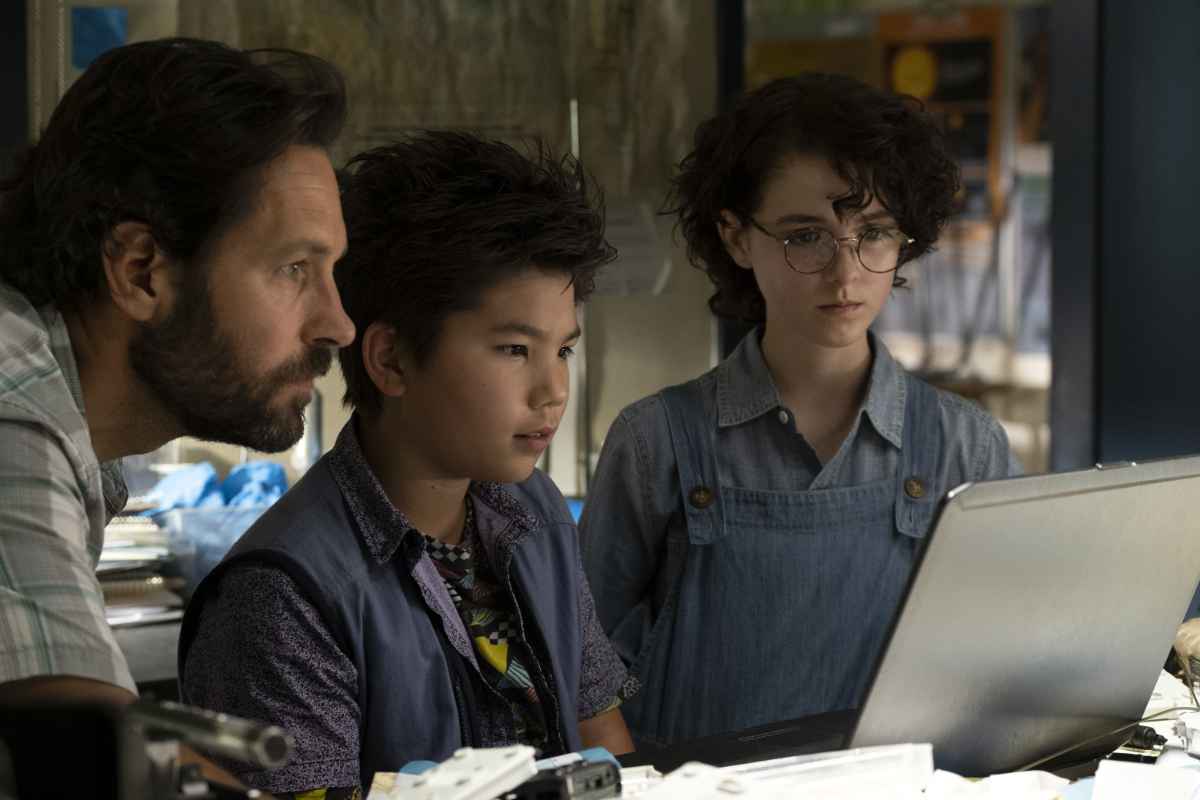
I can’t get over the fact that Ghostbusters: Afterlife isn’t very funny. Ghostbusters means a lot of things to a lot of people, but I would think that the humor would be its most important facet for generations to embrace. This is a children’s film for kids who weren’t even close to being born when the original film was released, and I think, for adults who were there, the nostalgia in it reflects the original film differently than we may remember it.
That’s a problem laid squarely at the feet of Jason Reitman, who is too close to the subject to have the perspective we all share. But that’s what Ghostbusters was in 1984: popping balloons (or giant marshmallow men) full of hot air instead of fluffing them up. Ghostbusters: Afterlife forgot to bring the funny, and if your Ghostbusters movie isn’t funny, is it even a Ghostbusters movie?
